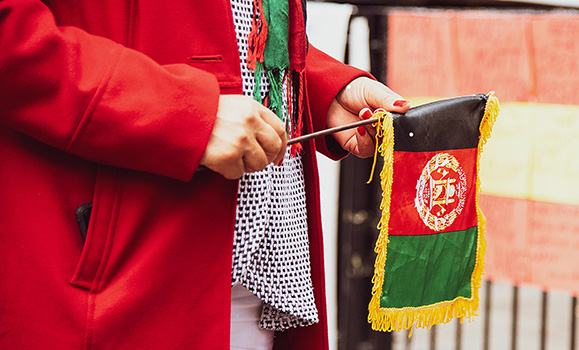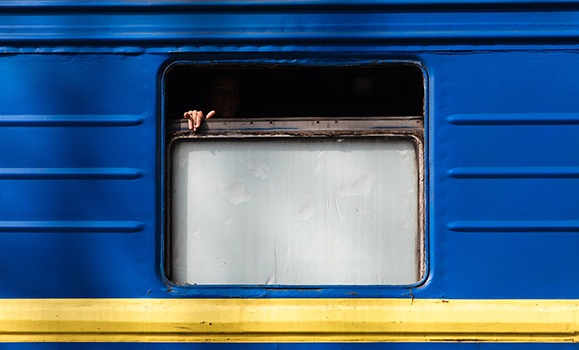When the Taliban swept back into power in Afghanistan more than two years ago, thousands of people fled their homes in search of safe havens around the world.
Similarly, the Russian invasion of Ukraine in 2022 set off an exodus of people seeking refuge in countries that offered to take them in and shield them from the ongoing war that has killed thousands.
Both Canada and the UK implemented programs allowing Ukrainians and Afghans to enter their countries, with Canada welcoming almost 40,500 Afghans and 199,000 Ukrainians, while the UK took in roughly 21,500 Afghans and 262,000 Ukrainians.
In the wake of those mass emigrations, questions arose over how the different groups were being received in their new host countries.
Researchers at Dalhousie University and the University of Oxford examined the issue in a one-of-a-kind study that looked at similarities and differences in the reception of Ukrainian and Afghan refugees, as well as their classification as either deserving or undeserving of state protection.
Patchwork approaches
A Tale of Two Contexts: The Ukrainian and Afghan Refugee Crises in Canada and the UK reviews scholarly literature from May 2021 to May 2023 in a bid to understand public perceptions and what was being written about the welcoming of the refugees in the two nations.
Co-author Raluca Bejan, an assistant professor in Dal's School of Social Work, says she was interested in investigating the prevailing view that Canada and the UK were being particularly welcoming when it came to taking in refugees, and how those responses differed for each group.
She suggests that patchwork approaches by the two host nations meant that the different emigrants appeared to have different benefits and disadvantages, making the overall welcoming of both groups inadequate in both countries.
"The simplistic explanations that were circulating online and in traditional media were saying that Ukrainians were so welcomed in Canada, yet I knew after studying migration for over 10 years that any schemes that are grounded in temporariness rather than offering permanent status will come with fewer rights," she says.

For example, both Ukrainians and Afghans who can show a prior connection to the host country are welcomed permanently in Canada and the UK. There are, however, fewer opportunities for Afghans to qualify for entry and fewer means for Ukrainians to immediately secure permanent residency.
The problem with the Afghan schemes, she explains, is that they are capped and very restrictive in terms of eligibility. This forces many Afghans to seek safety through irregular pathways. In 2022 alone, more than 9,000 Afghans arrived in the UK by crossing the English Channel in small boats.
"The main issue with the Ukrainian schemes is that they are temporary. They do not grant permanent residency on arrival and are generally set to end after a limited time. However, the war in Ukraine might not end within that time frame, and many might choose to remain in their new country," Dr. Bejan says.
Recommended reading: Dal prof's award‑winning doc depicts different side of refugee crisis
Complex motives
She explains that refugee groups are valued as deserving or underserving of state protection through a web of interconnected factors, including gender, nationality, age and religion as well as political and economic interests in host countries.
"Think that during the Cold War, the Afghans were what some would call the ‘preferred’ refugees, since they were associated with the struggle against the Soviets, a status they lost after the September 11th terror attacks," she says. "So, it is not just about identity. It is far more complex."
In researching the issue, Dr. Bejan says she was surprised to discover how few refugees Canada and the UK accepted, with both countries taking less than four per cent of the total share of 1.6 million Afghan and 6.29 million Ukrainian refugees.
"I was also surprised to find out that those who are granted permanent residency status are only those who can show a prior connection or family tie to the nation states," she says. "Thu is an important report because it debunks many myths in terms of the welcoming of these two groups. It also succinctly points out what matters most in the welcoming of refugees."
The authors of the report, funded through the Social Sciences and Humanities Research Council, make several recommendations, including:
* Broadening the eligibility for the Afghans permanent residency streams of entry into both Canada and the UK
* Granting permanent residency to Ukrainians who have entered both Canada and the UK, not only to those showing prior connection to the destination country
* Reopening the Canada-Ukraine Authorization for Emergency Travel scheme, which stopped last summer, since the war in Ukraine continues

